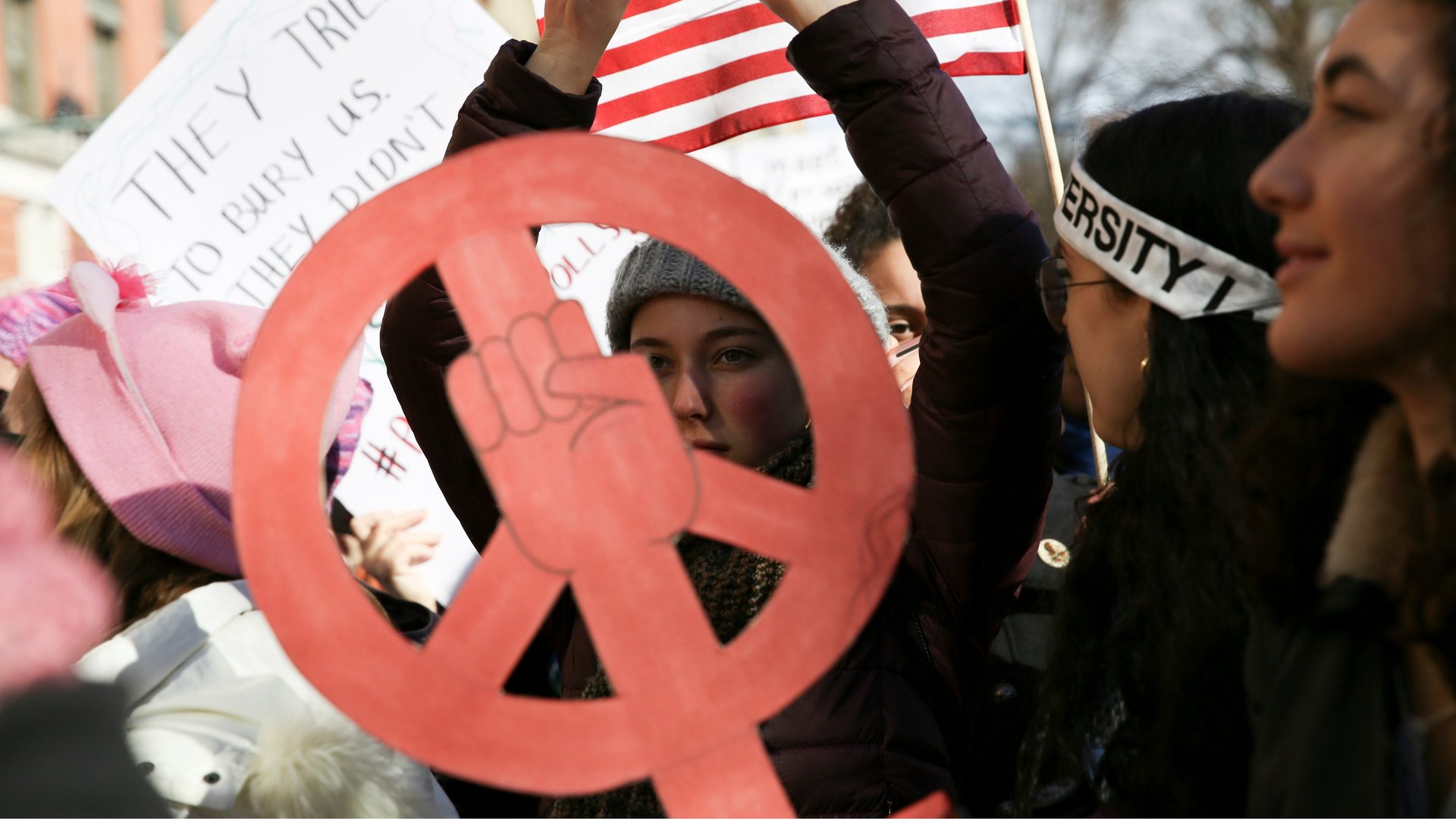More investment firms are letting clients put their money where their mouth is on gender equality
In the wake of the #MeToo movement, simply talking about the treatment of women and fretting about gender inequality are no longer enough. A demand for tangible action to make gender equality a reality is sweeping across many industries. In finance, one of the steps in this direction has been the recent creation of gender equality exchange-traded funds (ETFs). These give investors the chance to actively invest in companies that champion equality. Last month, Swiss banking giant UBS became the latest firm to offer one of these funds.


In the wake of the #MeToo movement, simply talking about the treatment of women and fretting about gender inequality are no longer enough. A demand for tangible action to make gender equality a reality is sweeping across many industries. In finance, one of the steps in this direction has been the recent creation of gender equality exchange-traded funds (ETFs). These give investors the chance to actively invest in companies that champion equality. Last month, Swiss banking giant UBS became the latest firm to offer one of these funds.
The UBS ETF is linked to the Solactive Equileap Global Gender Equality 100 Leaders Net Total Return Index. This index is comprised of the top international companies deemed to be leaders promoting gender equality based on 19 different metrics by Equileap, an organization trying to bring about equality using investments. Companies are scored on gender balance in senior management, equal pay, parental leave programs, flexible working opportunities, training programs, workplace safety, diversity in supply chains, as well as transparency and accountability in their efforts to be equitable.
Half of the ETF’s holdings are in US-based companies, but all are in developed markets. The companies must also meet additional environmental, social, and governance (ESG) criteria, in line with Solactive’s rules. Here are the 10 biggest holdings in the ETF, and the top 10 companies on Equileap’s index:
UBS’s ETF is part of the burgeoning field of so-called gender lens investing, in which capital is directed towards companies that make gender diversity and female inclusion a stated mission. Research by the Wharton business school published in October showed evidence that investment in women, which means everything from increasing women’s access to capital to developing products or services by and for women, was gaining momentum.
One of Wharton’s projects looked at private equity funds, and identified 58 funds that raised and deployed at least $1.3 billion with a gender lens in mind. More than a third of these funds were launched last year. In November, Lyxor asset management, owned by French bank Société Générale, was the first European investor to offer a gender-equality ETF (also produced by Solactive and using another Equileap index). In September, Canadian company Evolve ETFs launched a North American gender-equality ETF, which currently has C$2.7 million (US$2.2 million) in assets under management.
All of these follow the success of State Street’s Gender Diversity Index ETF, which has more than $300 million under management. It was launched back in March 2016, but has a narrower criteria than the others, only investing in US companies, based on the gender diversity of their boards and senior leadership. The newer ETFs based on the Equileap index have the important distinction of measuring companies by their impact on women outside of senior leadership roles and even outside of their firm, a much larger group.
This is just a small slice of the money that could be invested in better outcomes for women. UBS’s gender-equality ETF is part of a wider endeavor at the bank to improve the way it works with female clients, called UBS Unique. Aside from contributing investment products and philanthropic capital to achieving gender equality and female empowerment (the ETF contributes 5% of its management fee to the charity We Care Solar, which helps women giving birth get access better healthcare facilities in rural areas lacking electricity), UBS aims to improve financial confidence among women.
The bank’s program aims to increase the financial confidence of 1 million women over the next three to five years, said Olga Miler, managing director at UBS wealth management, who leads this effort. There is an educational program, which involves an online platform and a book that offers self-assessments, peer comparisons, and other teaching materials.
UBS declined to say how what percentage of their wealth management clients were women but have said that to date (Feb. 14), $40.6 million has been invested in the gender-equality ETF. The bank sees a huge opportunity to work more closely with female wealth holders. According to its research, women have the potential to invest $2.3 trillion towards sustainability and social good by 2021. The ETF is about “making gender more visible in the investment space,” Miler said, as well as “empowering and allowing people to make a vote with their wallets” for equality.
“I personally believe that capital flow, as it starts to direct towards companies, will accelerate this movement,” Miler said. A positive score on gender equality also acts a proxy for a well-managed company with good corporate governance. If money flows to these companies, the impact will punish companies that don’t adhere to such standards as much as rewarding ones that do.
Correction: The spelling of Olga Miler’s name has been corrected, from Miller. The story was also updated to include the assets under management of the UBS gender-equality ETF.